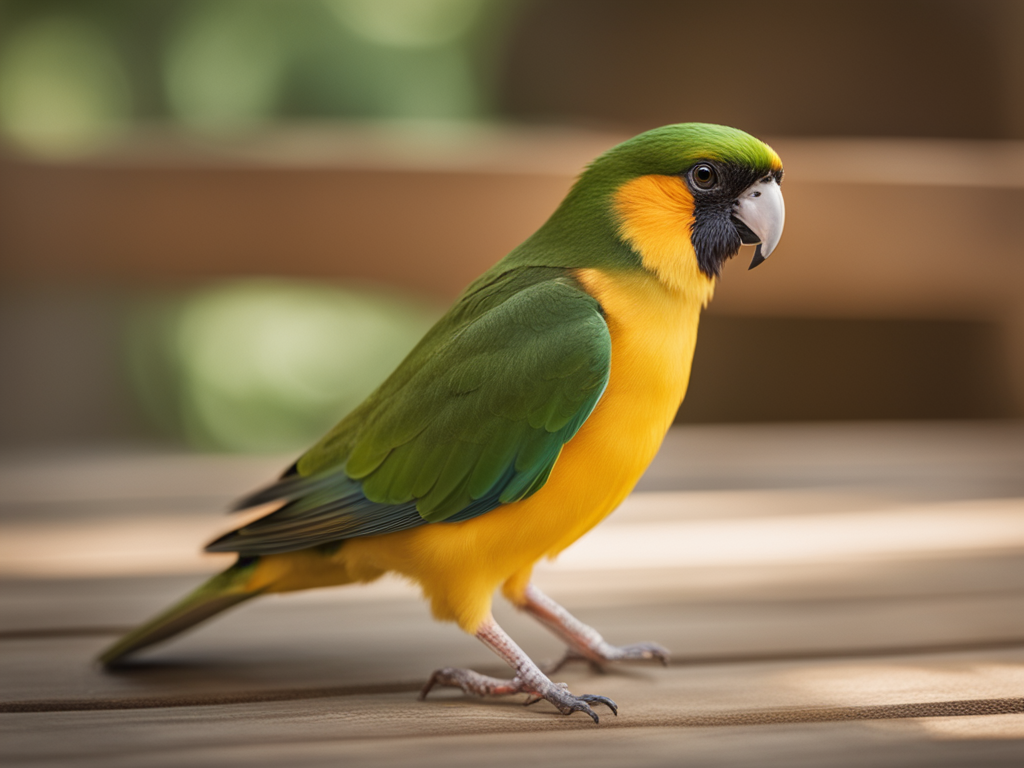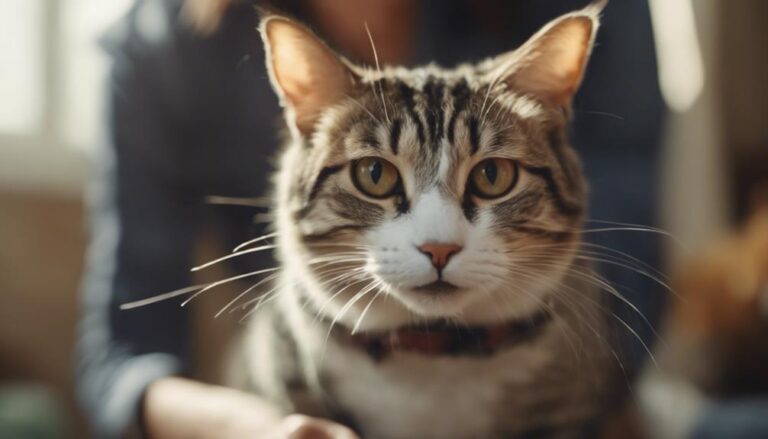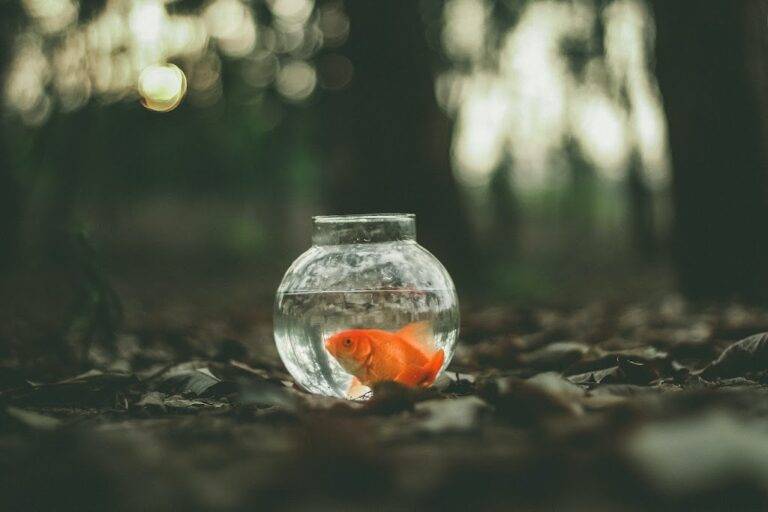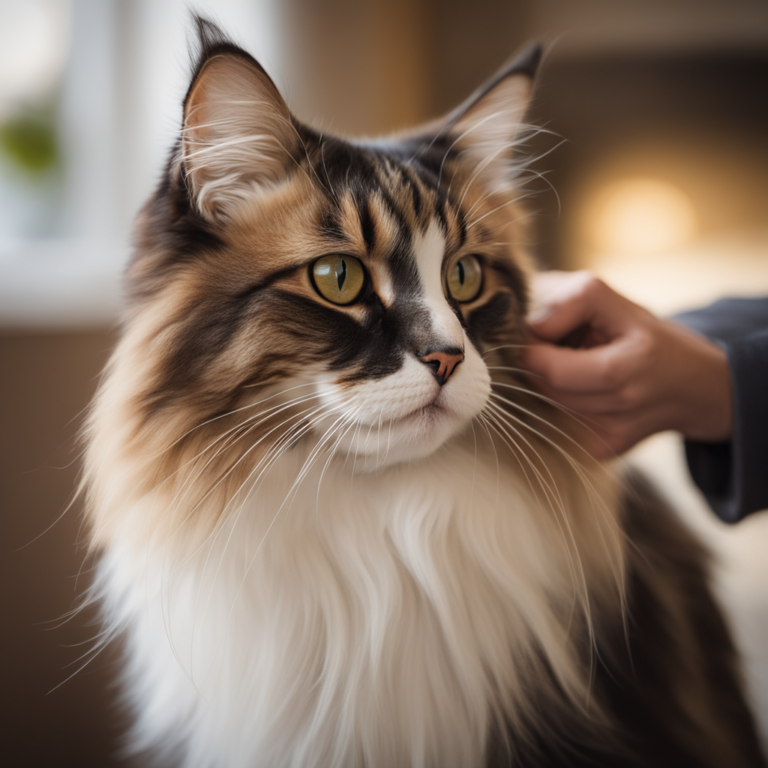8 Simple Steps To Keeping Your Pet Birds In Top Condition

8 Simple Steps To Keeping Your Pet Birds In Top Condition: Did you know that keeping your pet birds in top condition is easier than you think? With just a few simple steps, you can ensure that your feathered friends are healthy, happy, and thriving. From transitioning their diet to providing them with a safe and stimulating environment, there are many ways to keep your pet birds in the best possible shape. So, if you’re ready to discover the secrets to keeping your avian companions in top condition, then keep reading to uncover these eight simple steps that will make all the difference in their well-being.
Transitioning To A Healthy Diet
To successfully transition your pet bird to a healthy diet, it is important to gradually introduce pellets while monitoring their weight and progress using a gram scale. This process ensures that your bird adjusts to the new food without any sudden changes that could affect their health. Start by mixing a small amount of pellets with their current seed diet and gradually increase the proportion of pellets over time. This allows your bird to become familiar with the taste and texture of the pellets while still receiving the nutrients they needs from their seed mix.
Monitoring your bird’s weight and progress during the transition is crucial. Using a gram scale, weigh your bird daily to track any changes. It’s important to note that during this process, you should not starve your bird. They should still have access to their regular food, but the goal is to encourage them to eat more pellets gradually. Keep an eye on their weight and adjust the amount of pellets accordingly. If you notice any significant weight loss or health issues, consult a veterinarian for guidance.
Remember, transitioning to a healthy diet takes time. It may take months to a year for your bird to fully transition to a pellet-based diet. Be patient and persistent. Ensuring the transition is safely achieved means that your bird should not lose more than 1-2% of its body weight per week. If you notice rapid weight loss, it’s important to re-evaluate the transition process and consider seeking professional advice.
In addition to monitoring their diet, it is also important to provide your pet bird with a clean and comfortable cage. Regularly clean their food and water dishes to prevent the growth of bacteria. Fresh water should be available at all times, and any uneaten food should be removed daily to maintain optimal health. By following these guidelines and gradually introducing pellets into your bird’s diet, you can help them achieve a healthier and happier life.
Providing Proper Housing
Place your pet bird’s cage in a corner or against a wall to ensure their safety and protection. This positioning helps to create a sense of security for your pet birds, as it reduces the risk of them feeling vulnerable to potential threats. Additionally, it prevents any accidental knocking or tipping of the cage, which could harm your feathered friends.
When it comes to housing your pet birds, consider using a separate sleeping cage or a cage with casters. This allows you to move the cage around easily, making it more convenient for cleaning and providing a change of scenery for your birds.
Providing a variety of perches is essential for your bird’s foot health and exercise. Different diameters, shapes, and textures help to prevent foot problems that can arise from constantly gripping the same perch. By offering a range of perches, you can help keep your bird’s feet in top condition.
Food and water bowls should be placed high in the cage to minimize contamination. Consider using hooded bowls for messy birds, as they help contain any spills and keep the cage cleaner for longer. It is crucial to provide fresh water daily to ensure your bird remains hydrated and healthy.
When selecting a bird cage, opt for a large rectangular enclosure that is at least twice the wingspan of your bird. This allows ample space for your bird to move around, stretch its wings, and engage in natural behaviors. Additionally, consider the living habits of your bird when choosing the cage, as different species have different needs.
Creating an Enriching Environment
Create a stimulating environment for your pet bird by providing a variety of perches, toys, and opportunities for mental and physical enrichment. A well-designed bird cage should have perches with different diameters, shapes, and textures to promote foot health and exercise. This variety helps prevent foot problems such as arthritis and bumblefoot. Avian veterinarians recommend using natural branches or rope perches in addition to the standard plastic ones. These alternatives simulate a bird’s natural environment and provide a more comfortable and engaging space for your pet.
To keep your bird mentally stimulated, offer a variety of toys that encourage exploration and play. Birds are intelligent creatures and need mental stimulation to prevent boredom and behavioral problems. Rotate the toys regularly to keep your bird interested and engaged. Puzzle toys, for example, provide mental challenges that can keep your bird entertained for hours. Additionally, providing your bird with daily access to unfiltered sunlight or full-spectrum lighting is essential for the synthesis of vitamin D, which contributes to their overall health and well-being.
Spending quality time with your bird on a daily basis is crucial for their mental and emotional health. Interact with them through talking, singing, or playing games. This daily bonding time builds trust and prevents loneliness, which can lead to behavioral issues. Furthermore, providing opportunities for bathing or misting is important for maintaining proper feather condition. Birds enjoy and need to bathe to keep their feathers clean and healthy.
Regular Baths and Grooming
Regularly bathing and grooming your pet bird is essential for maintaining their plumage and overall skin health. Just like humans, birds need to stay clean to feel their best. To keep your bird happy and healthy, it’s important to make sure they receive regular baths and grooming.
Bathing your bird is a simple yet vital step in their care routine. Most birds enjoy a gentle misting of lukewarm water from a spray bottle. Simply hold the bottle a few inches away from your bird and spray a light mist over their feathers. Alternatively, you can provide a shallow dish of lukewarm water for your bird to bathe in. This will allow them to splash around and clean themselves. Watching your bird enjoy their bath can be a delightful experience for both of you.
In addition to bathing, grooming is another important aspect of keeping your bird in top condition. Regular nail trimming is necessary to prevent overgrowth and potential injury. You can use bird-specific nail clippers to carefully trim the tips of your bird’s nails. It’s also important to maintain your bird’s beak. Provide chewable toys and perches made of safe materials to help your bird naturally wear down their beak.
It’s crucial to pay attention to your bird’s grooming habits and behavior. If you notice any signs of distress or discomfort during bathing or grooming, it’s best to consult a veterinarian who specializes in avian care. By properly bathing and grooming your birds, you are not only maintaining their appearance but also ensuring their overall health and well-being. Happy and healthy birds make for happy bird owners.
Encouraging Exercise and Playtime
To keep your pet bird in top condition, it’s important to encourage exercise and playtime. Fun bird toys are a great way to promote physical and mental stimulation. Flight training exercises can also help your bird stay active and engaged. Lastly, interactive play sessions with your bird can provide both physical activity and mental enrichment. By incorporating these activities into your bird’s routine, you can ensure they stay happy and healthy.
Fun Bird Toys
To encourage exercise and playtime for your pet bird, it is important to provide a variety of fun toys that promote mental stimulation and physical activity. Birds are naturally active creatures, and they need opportunities to exercise their wings and minds. Different bird species have different preferences, so it’s important to offer a variety of toys to cater to their needs.
Consider providing toys that encourage your bird to fly around, such as swings or ladders. For mental stimulation, use foraging toys or wrap fruits and vegetables in paper for your bird to unwrap and find. Additionally, create a stimulating environment by placing toys in different locations within the cage. By incorporating these fun bird toys into your pet’s routine, you can ensure they stay engaged and healthy. Remember, exercise and mental stimulation are essential parts of taking care of your bird, along with providing a balanced and healthy diet.
Flight Training Exercises
Encouraging exercise and playtime through flight training exercises is crucial for maintaining your bird’s physical and mental well-being. Regular flight training helps your bird stay active, reduce boredom, and strengthen its muscles. Start by implementing training sessions in a safe and controlled environment to prevent accidents. Use positive reinforcement techniques, such as treats or praise, to encourage your bird to participate.
Gradually increase the distance and height of flight exercises to challenge your bird’s abilities and keep them engaged. It is important to consult with avian experts who can provide specific flight training regimens tailored to your bird’s species and abilities. Remember to prioritize safety and ensure that your bird is on a well-formulated diet. Additionally, schedule regular visits to the animal hospital to have your bird checked and maintain its overall health. By incorporating flight training exercises into your bird’s daily routine, you are promoting an active and happy lifestyle for your feathered friend.
Interactive Play Sessions
Engage your bird in interactive play sessions to promote mental and physical stimulation. It is crucial for bird owners to allocate time each day for playtime with their feathered friends. Birds cannot thrive without regular exercise and mental stimulation. To create an engaging play session, provide your bird with a variety of toys, climbing structures, and interactive games. Incorporate activities that mimic their natural behaviors, such as foraging, flying, and problem-solving.
Remember to rotate and introduce new toys regularly to keep your bird’s interest and engagement. Supervise these play sessions to ensure safety and prevent boredom or destructive behavior. When designing a play area, a rectangular cage is best as it allows ample space for your bird to move around and explore.
Monitoring Health and Veterinary Care
Regular veterinary check-ups are essential for monitoring the health of your pet bird. Just like any other pet, birds can also develop health issues that may require professional attention. By scheduling regular check-ups with a veterinarian or avian specialist, you can ensure that any potential health problems are detected and addressed early on.
In addition to regular check-ups, it is important to monitor your bird’s behavior, appetite, and droppings for signs of illness or distress. Changes in behavior, such as lethargy or aggression, along with a loss of appetite or abnormal droppings, can indicate a health issue. If you notice any of these signs, it is important to consult with your veterinarian as soon as possible.
Trimming your bird’s nails and beak is another important aspect of monitoring their health. Overgrown nails can cause discomfort and difficulty perching, while an overgrown beak can lead to problems with eating and grooming. Regular nail trims and beak maintenance can prevent these issues and promote your bird’s overall well-being.
Providing your bird with opportunities for bathing or misting is also crucial for maintaining proper feather condition. Birds naturally groom themselves by preening their feathers, and regular bathing or misting helps to keep their feathers clean and in good condition. You can offer a shallow dish of water or use a spray bottle to mist your bird, making sure to avoid getting water directly into their face or eyes.
Socializing and Bonding With Your Birds
To maintain a strong and healthy bond with your pet bird, it is crucial to dedicate quality time and attention to socializing and bonding with them on a regular basis. Just like any other pet, birds need social interaction to thrive and prevent loneliness. As a pet owner, you play a vital role in providing the companionship they need.
One way to socialize with your bird is to allow supervised interaction with other family members. This creates a sense of inclusion and helps your bird feel like a part of the family. However, it’s important to ensure that interactions are always supervised to prevent any accidents or harm to your bird.
Positive reinforcement techniques are also essential for training and building a trusting relationship with your bird. Rewarding good behavior with treats or praise will encourage them to repeat the desired actions. This not only strengthens the bond between you and your bird but also helps them feel secure and loved.
In addition to spending time together, providing out-of-cage time in a safe environment is crucial for your bird’s mental and physical well-being. Allowing them to explore and exercise outside their cage promotes a sense of freedom and stimulates their natural instincts. Remember to bird-proof the area to prevent any accidents or escapes.
Creating a stress-free environment for socialization is essential. Avoid exposing your birds to harmful fumes or substances that could negatively affect their health. Also, ensure that their living space is clean and comfortable, with a shallow dish for bathing and a water bottle for drinking.
Maintaining a Stress-free Environment
Creating a stress-free environment for your pet bird is essential for their overall well-being and mental health. One of the first steps you should take is to keep your bird’s cage in a quiet, low-traffic area. This will help minimize stress by reducing exposure to loud noises and constant activity. Additionally, creating a consistent daily routine for feeding, play, and rest will provide your bird with a sense of security. Birds thrive on routine, so make sure to stick to a schedule that works for both you and your feathered friend.
To help stimulate your bird’s mind and body, it’s important to provide them with toys and perches. Toys will keep your bird entertained and prevent boredom, while perches will give them a place to rest and exercise their feet. Make sure to choose toys that are safe and appropriate for your bird’s size and species. Natural wood perches are a great option, as they mimic the branches birds would find in the wild. Just be sure to avoid perches with sandpaper covers, as they can be abrasive to your bird’s feet.
When it comes to the cage itself, choose one that is easy to clean. This will not only benefit your bird’s health but also minimize stress for both of you. A rule of thumb is to choose a cage with a removable tray or grate that you can easily clean and replace. Additionally, consider using wood chips as bedding, as they are absorbent and make cleaning a breeze.
Lastly, if your bird is kept indoors, be mindful of sudden changes in the environment or handling. Birds are sensitive creatures, and sudden changes can cause stress and anxiety. Pay close attention to your bird’s behavior and body language, and make adjustments as needed to provide a calm and stress-free environment.
8 Simple Steps To Keeping Your Pet Birds In Top Condition Frequently Asked Questions
What Are the Steps to Take Care of a Bird?
To take care of your bird, focus on their diet, cage, exercise routine, mental stimulation, grooming needs, regular vet check-ups, and socialization with other birds. These steps will keep your feathered friend in top condition.
How Do You Keep a Pet Bird Healthy?
To keep your pet bird healthy, feed them a balanced diet of pellets, fruits, and vegetables. Provide regular exercise through flying and playtime. Keep their living area clean, schedule vet check-ups, offer mental stimulation, and give them social interaction and a safe environment.
What Are the Tips for Owning Birds?
To own birds, feed them a balanced diet, use taming and socializing techniques, create a comfortable cage setup, keep them active through exercise routines, maintain their hygiene with grooming practices, prevent and treat common health issues, and bond with them to build a strong relationship.
What Do Birds Need to Stay Healthy?
To keep your pet bird healthy, make sure to provide a balanced bird diet, establish an exercise routine, maintain cage hygiene, provide mental stimulation, schedule regular vet check-ups, ensure proper socialization, and create a safe environment.
Conclusion
In conclusion, by following these simple steps, you can ensure that your pet birds remain in top condition. Transitioning their diet gradually, providing safe and spacious housing, and offering a balanced diet with fresh water and a variety of seeds, pellets, fruits, and vegetables are essential. Keeping their environment clean, providing mental stimulation through toys and enrichment activities, and maintaining regular veterinary check-ups will also contribute to their overall well-being. Lastly, interacting with your birds daily and creating a stress-free environment will foster a strong bond and promote their happiness and health.








